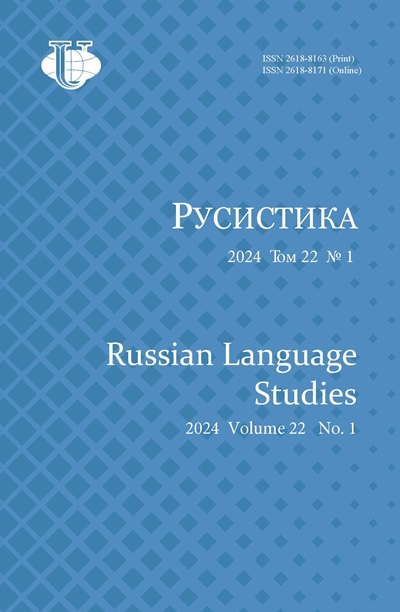Issue
Title
Authors
|
Safonova M.A. |
|
Mekeko N.M. |
|
Rumjanseva N.M. |
|
Zhelezniakova E.A., Lapteva M.L. |
|
Kulsha D.N., Ryabokoneva O.V. |
|
Kuvychko A.A. |
|
Poplavskaia T.V. |
|
Yurina E.A. |
|
Petrova S.M. |
|
Uskova O.A., Vasilyeva T.V., Kuznetsov A.L. |
|
Korchagina N.V. |
|
Ershova O.V., Yaroslavskaya I.I. |
|
Tall Useinu -. |
|
Kamaeva T.P. |
|
Martynenko I.A. |
|
Bagomedov M.R. |
|
Baranova I.I., Chuvaeva K.M. |
|
Erofeeva I.N., Popova T.I. |
|
Berardi S. |
|
Krasnokutskaya N.V. |
|
Biyumena A.A. |
|
Leppik S.A., Ustinov A.Y., Chabanets T.A. |
|
Nikalayenko S.V. |
|
Guzman Tirado R. |
|
Nikitin O.V. |
|
Novikov A.L., Rybakov M.A. |
|
Faje F.D. |
|
Ebzeeva Y.N., Lenko G.N. |
|
Shustikova T.V., Žurkina N.V. |
|
Magsar T. |
|
Shuntova O.V. |
|
Shmelkova V.V. |
|
Konstantinova L.A., Pronina E.V. |
|
Zahraee H.S. |
|
Markova E.M., Kvapil R. |
|
Slozhenikina Y.V., Rastyagaev A.V. |
|
Qiu X. |
|
Okoedion E.G., Okolie U.C. |
|
Heiser F. |
|
Maslova V.A. |
|
Duryagin P.V. |
|
Nikitin O.V. |
|
Polychronidou S.V. |
|
Cherkashina T.T., Novikova N.S., Sayenko T.I. |
|
Bykova I.A. |
|
Aliyeva S.Q. |
|
Zvezdina A.O. |
|
Sujuan Wu -. |
|
Ivanova N.K. |
|
Novikova M.L. |
|
Kudoyarova T.V. |
|
Khokhlina M.L. |
|
Velichko A.V. |
|
Kostromin A.B., Gorbatenko O.G. |
|
Shumilina S.A., Levina V.N. |
|
Abrosimova O.L., Voronova L.V. |
|
Licari C., Perotto M. |
|
Soltys V.K. |
|
Senatorova O.A. |
|
Nikitina T.G. |
|
Tarasova N.I. |
|
Ivanov E.E. |
|
Wik N.O. |
|
Zagorovskaya O.V., Biryukova E.D. |
|
Salamatina I.I., Strebkova Z.V. |
|
Nikolaenko S.V. |
|
Radovich M. |
|
Gynin V.I. |
|
Leifa I.I., Yacewich L.P. |
|
Baryshnikova E.N., Shtyrina E.V. |
|
Naydenova N.S. |
|
Bobrova S.E. |
|
Krotova T.A. |
|
Shaklein V.M. |
|
Loginova I.M. |
|
Bereznjatskaja M.A., Serova L.K. |
|
Dagbaeva O.I., Nelyubova N.Y. |
|
Shaklein V.M. |
|
Ratsiburskaya L.V., Zhdanova E.A. |
|
Laposhina A.N., Lebedeva M.Y. |
|
Zavarzina G.A. |
|
Balakina K.D. |
|
Moskovkin L.V. |
|
Vyazovskaya V.V., Danilevskaya T.A., Trubchaninova M.E. |
|
Bozhenkova N.A., Bozhenkova R.K., Shulgina N.P. |
|
Mamontov A.S. |
|
Fatkullina F.G. |
|
Khromenkov P.N., Maksimenko O.I. |
|
Kurguzenkova Z.V. |
|
Polychronidou S. |
|
Zavarzina G.A. |
|
Vasilyuk I.P. |
|
Yuyukin M.A. |
|
Liu Di -. |
|
Tsareva N.Y., Budiltseva M.B. |
|
Brygina A.V., Zorina G.S. |
|
Granatova Y., Baryshnikova E.N. |
|
Nedosugova A.B. |
|
Klimkievitch A. |
|
Moiseenko L.V., Gervilla E.Q. |











